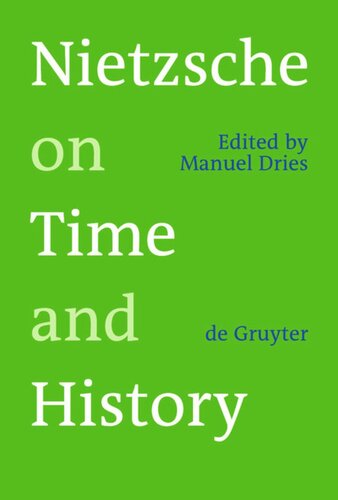

Most ebook files are in PDF format, so you can easily read them using various software such as Foxit Reader or directly on the Google Chrome browser.
Some ebook files are released by publishers in other formats such as .awz, .mobi, .epub, .fb2, etc. You may need to install specific software to read these formats on mobile/PC, such as Calibre.
Please read the tutorial at this link: https://ebookbell.com/faq
We offer FREE conversion to the popular formats you request; however, this may take some time. Therefore, right after payment, please email us, and we will try to provide the service as quickly as possible.
For some exceptional file formats or broken links (if any), please refrain from opening any disputes. Instead, email us first, and we will try to assist within a maximum of 6 hours.
EbookBell Team

0.0
0 reviewsIn 1885 Nietzsche insisted that from now on philosophy was only acceptable ‘as the most general form of history, as an attempt somehow to describe Heraclitean becoming and to abbreviate it into signs.’ Taking this remark as a starting point, the aim of this volume is to examine the intricate relationship between Nietzsche’s philosophy of time and his philosophy of history. The questions that arise include: What are the new conceptions of time that Nietzsche has to offer? What kind of historian was Nietzsche himself? What kinds of temporalized histories and historicized philosophies did he write or fail to write? This collection of essays, written by fourteen academics including eminent figures such as John Richardson, Raymond Geuss, Lawrence J. Hatab, and Andrea Orsucci, constitute essential reading for specialists of Nietzsche, and will also appeal to a larger audience of intellectual historians, philosophers and others who are interested in the development of modern thought.